What are the longer-term trends that gave rise to the presidency of Donald Trump? What will be the national and global impacts? And what do we need to do to resist? Henry A. Giroux tackles these questions in The Public in Peril: Trump and the Menace of American Authoritarianism. «This courageous and timely book is the first and best book on Trump’s neo-fascism in the making,» says Cornel West. To order your copy, click here and make a tax-deductible donation to Truthout now!
Confronted with the rise of an authoritarian society affecting all institutions and individuals, there is a need for resistance based on radical transformation, says Henry A. Giroux in this interview about The Public in Peril. This resistance is embodied in mass action and a vision to achieve the hope of a life beyond capitalism.
Mark Karlin: What is the impact of domestic terrorism and authoritarianism on young people?
Henry A. Giroux: Under the authoritarian reign of Donald Trump, finance capitalism now drives politics, governance and policy in unprecedented ways and is more than willing to sacrifice the future of young people for short-term political and economic gains, regardless of the talk in the mainstream media about the need to not burden future generations with heavy tuition debt and a future of low-wage jobs. American society has declared war on its children, offering a disturbing index of a social order in the midst of a deep moral and political crisis. Too many young people today live in an era of foreclosed hope, an era in which it is difficult either to imagine a life beyond the tenets of a market-driven society or to transcend the fear that any attempt to do so can only result in a more dreadful nightmare.
Young people are not only written out of the future … but are now considered a threat to the future.
Youth today are not only plagued by the fragility and uncertainty of the present, they are, as the late Zygmunt Bauman has argued, «the first post war generation facing the prospect of downward mobility [in which the] plight of the outcast stretches to embrace a generation as a whole.» It is little wonder that «these youngsters are called Generation Zero: A generation with Zero opportunities, Zero future,» and Zero expectations. Youth have become the new precariat, whose future has been sacrificed to the commands of capital and the financial elite. Moreover, as the social state is decimated, youth, especially those marginalized by race and class, are also subject to the dictates of the punishing state. Not only is their behavior being criminalized in the schools and on the streets, they are also subject to repressive forms of legislation aimed at removing crucial social provisions. At the same time, undocumented immigrant youth called Dreamers, brought to the United States by their parents as children, are now being threatened by legislation designed to expel them from the United States, the only home they have known since early childhood.

Henry A. Giroux. (Photo: Courtesy of the author)
Beyond exposing the moral depravity of a society that fails to provide for its youth, the symbolic and real violence waged against many young people bespeaks to nothing less than a perverse collective death-wish — especially visible when youth protest their conditions. We live in an era in which there is near zero tolerance for peaceful demonstrations on the part of young and a willingness by the government to overlook the crimes of bankers, hedge fund managers, and other members of the corporate elite who steal untold amounts of wealth, affecting the lives of millions. How else to explain the fact that at least 25 states are sponsoring legislation that would make perfectly legal forms of protest a crime that carries a huge fine or subjects young people to possible felony charges?
The Trump administration needs education to fail because it fears the possibility of educated citizens developing the capacities necessary to meet the challenges of authoritarianism.
If youth were once the repository of society’s dreams, that is no longer true. Increasingly, young people are viewed as a public disorder, a dream now turned into a nightmare. Many youth live in a post-9/11 social order that positions them as a prime target of its governing through [the] crime complex. This is made obvious by the many «get tough» policies that now render young people as criminals, while depriving them of basic health care, education and social services. Punishment and fear have replaced compassion and social responsibility as the most important modalities for mediating the relationship of youth to the larger social order, all too evident by the upsurge of zero tolerance laws along with the expanding reach of the punishing state. When the criminalization of social problems becomes a mode of governance and war its default strategy, youth are reduced to soldiers or targets — not social investments. Young people are not only written out of the future … but are now considered a threat to the future. Too many youth are now removed from any discourse about democracy and increasingly fall prey to what I call the «war on youth.» The war on youth can best be understood through two concepts: the soft war and the hard war, [both] of which have been intensified under Trump’s presidency.
The soft war involves the temptation and manufactured seductions of desire, and refers to the unyielding depoliticization and commodification of youth, waged through the unrelenting expansion of a global market society. Partnered with a massive advertising machinery, the soft war targets all children and youth, treating them as yet another «market» to be commodified and exploited, and conscripting them into the system through relentless attempts to create a new generation of hyper-consumers. In this instance, young people are not only viewed as consumers but also as embodied brands. Caught in the intrusive new technologies of advertising and public relations, there is no space for young people to be free of the commercial carpet-bombing they are forced to endure. Hence, their subjectivity, desires and ways of relating to others are endlessly commodified so that their presence in the world is marked by the fact that they are either selling a product (which they inhabit) or buying one. The soft war is rooted in neoliberal disimagination zones, which makes it more difficult for young people to find public spheres where they can locate themselves and translate metaphors of hope into meaningful action. The dystopian dreamscapes that make up a neoliberal society are built on the promises of uncomplicated consumption, an assumption that is both dehumanizing and central to the war waged by an authoritarian society on critical agency, the radical imagination, and visions of a more just society. Agency and self-renewal are increasingly limited to a sphere of raw consumption and change to the empty vocabulary of fashion and lifestyles. In a society of mass consumption, shallowness becomes a strength and the mythology of American innocence becomes a blinding storm.
Under Donald Trump, the ideology and violence associated with white supremacy has been moved from the margins to the center of power in the United States.
The hard war is about coercion and is a more serious and dangerous development for young people, especially those who are marginalized by their ethnicity, race and class. The hard war refers to the harshest elements of a growing youth-crime-control complex that operates through a logic of punishment, surveillance and repression. The young people targeted by its punitive measures are often poor minority youth who are considered failed consumers and who can only afford to live on the margins of a commercial culture that excludes anyone who lacks money, resources and leisure time to spare. Or they are youth considered uneducable and unemployable, therefore troublesome. The imprint of the youth-crime-control complex can be traced to the increasingly popular practice of organizing schools through disciplinary practices that subject students to constant surveillance through high-tech security devices while imposing on them harsh, and often thoughtless, zero-tolerance policies that closely resemble measures used currently by the criminal [legal] system. In this instance, poor and minority youth become objects of a new mode of governance based on decisions made by a visionless managerial elite. Punished if they don’t show up at school, and punished even if they do attend school, many of these students are funneled into what has been ominously called the «school-to-prison pipeline.» If middle- and upper-class kids are subject to the seductions of market-driven public relations, working class youth are caught in the crosshairs between the arousal of commercial desire and the harsh impositions of securitization, surveillance and policing.
How does neoliberalism affect higher education?
Higher education in our politically desperate age is threatened by a legacy that it does not dare to name and that legacy with its eerie resonance with an authoritarian past asserts itself, in part, with the claim that education is failing and democracy is an excess. The Trump administration needs education to fail in a very particular way, because it fears the possibility of educated citizens developing the capacities, intellectual and ethical, necessary to meet the challenges of authoritarianism. Hostile to its role as a public good and democratic sphere, it is attempting to reshape education according to the market-driven logic of neoliberalism with its emphasis on privatization, commodification, deregulation, fear and managerialism. Under neoliberalism, the market becomes a template for all of social life and not just the economy. Commercial values are the only values that matter, and the only stories that matter are written in the language of finance, profit and the economy. Under such circumstances, higher education is threatened for its potential role as a public sphere capable of educating students as informed, critical thinkers capable of not only holding power accountable but also fulfilling the role of critical agents who can act against injustice and resist diverse forms of oppression. The criminogenic machinery of power has now reached the highest levels of the US government, and in doing so, it is changing not just the language of educational reform, but also making it difficult for faculty and students to resist their own erasure from modes of self-governance and a critical education.
The killing of people abroad based on race is paralleled by (and connected with) the killing of Black people at home.
New forms of exclusion, unbridled commodification, and exclusion rooted in a retreat from ethics, the social imagination, and democracy itself weakens the role higher education might take in an age of increasing tyranny. Against the force of a highly militarized mode of casino capitalism in which violence is at the center of power, higher education is being weakened in its ability to resist the authoritarian machinery of social death now shaping American society. Neoliberalism views higher education in strictly economic terms and rejects any notion of higher education as a democratic public sphere — as a space in which education enables students to be critical thinkers, learn how to take risks, hold power accountable, and develop a sense of moral and political agency through which they learn to respect the rights and perspectives of others. Under the regime of neoliberalism in the United States and in many other countries, many of the problems facing higher education can be linked to eviscerated funding models, the domination of these institutions by market mechanisms, the rise of for-profit colleges, the rise of charter schools, the intrusion of the national security state, and the slow demise of faculty self-governance, all of which make a mockery of the meaning and mission of the university as a democratic public sphere. With the onslaught of neoliberal austerity measures, the mission of higher education has been transformed from educating citizens to training students for the workforce. Students are viewed as clients and customers, and the culture of business replaces any vestige of democratic governance. At the same time, faculty are reduced to degrading labor practices and part-time contracts, administrators are reduced to a visionless managerial class, the college and university presidents inhabit the role of CEOs.
Rather than enlarge the moral imagination and critical capacities of students, too many universities are now wedded to producing would-be hedge fund managers and depoliticized workers, and creating modes of education that promote a «technically trained docility.» Strapped for money and increasingly defined in the language of corporate culture, many universities are now driven principally by vocational, military and economic considerations while increasingly removing academic knowledge production from democratic values and projects. The ideals of higher education as a place to think, to promote critical dialogue and teach students to cultivate their ethical relation with others are viewed as a threat to neoliberal modes of governance. At the same time, education is seen by the apostles of market fundamentalism as a space for producing profits and educating a supine and fearful labor force that will exhibit the obedience demanded by the corporate order. The modern loss of faith in the marriage of education and democracy needs to be reclaimed, but that will only happen if the long legacy of struggle over education is once again brought to life as part of a more comprehensive understanding of education as being central to politics, and learning as a vital component of social change.
What has been the impact of the political triumph of white supremacism and racial cleansing?
Under Donald Trump, the ideology and violence associated with white supremacy has been moved from the margins to the center of power in the United States. Trump not only courts the favor of white supremacists, neo-Nazis, militiamen and other right-wing racist groups, he panders to them as central elements of his base. How else to explain his racist travel bans, his unremitting attacks on Black athletes and his constant equating of Black communities with the culture of violence and criminality? Or, for that matter, Trump’s ramping up of the police state and his ongoing assertion that his presidency strongly endorses a platform of law and order. The current mobilization of fear and moral panics has its roots in and feeds off of a legacy of white supremacy that is used to divert anger over dire economic and political conditions into the diversionary cesspool of racial hatred. It might be best to understand Trump’s racism as part of a broader movement of white supremacy across the globe, with its attack on immigrants and its emulation of fascist ideology and social relations. Throughout Europe, fascism and white supremacy in their diverse forms are on the rise. In Greece, France, Poland, Austria and Germany, among other nations, right-wing extremists have used the hateful discourse of racism, xenophobia and white nationalism to demonize immigrants and undermine democratic modes of rule and policies.
Much of the right-wing, racist rhetoric coming out of these countries mimics what Trump and his followers are saying in the United States. One outcome is that the public spheres that produce a critically engaged citizenry and make a democracy possible are under siege and in rapid retreat. Economic stagnation, massive inequality, the rise of religious fundamentalism and growing forms of ultra-nationalism now aim to put democratic nations to rest. Echoes of the right-wing movements in Europe have come home with a vengeance. Demagogues wrapped in xenophobia, white supremacy and the false appeal to a lost past echo a brutally familiar fascism, with slogans similar to Donald Trump’s call to «Make America Great Again» and «Make America Safe Again.»
Fascism in its various forms is about social and racial cleansing.
Trump’s insistence on racial profiling echoes increasing calls among European right-wing extremists to legitimate a police state where refugees and others are viewed as a threat, unwanted and disposable. How else to explain Trump’s insistence on reintroducing nationwide «stop and frisk policies» after the demonstrations in Charlottesville, North Carolina over the police killing of an African American, Keith Lamont Scott, in September of 2016? Trump willingly reproduces similar right-wing ideologies such as those condemning and demonizing Syrian and other immigrants trying to reach Europe. He does so by producing panic-ridden taunts, tweets and executive orders whose aim is to generate mass anxiety and legitimate policies that mimic forms of ethnic and social cleansing. Trump joins a growing global movement of racial exclusion, one that is on the march spewing hatred, embracing forms of anti-Semitism, white supremacy and a deep-seated disdain for any form of justice on the side of democracy.
State-manufactured lawlessness has become normalized and extends from the ongoing and often brutalizing, and sometimes lethal, police violence against Black people and other vulnerable groups to a criminogenic market-based system run by a financial elite that strips everyone but the upper 1 percent of a future by stealing not only their possessions but also by condemning them to a life in which the only available option is to fall back on one’s individual resources in order to barely survive. At the national level, lawlessness now drives a militarized foreign policy intent on assassinating alleged enemies rather than using traditional forms of interrogation, arrest and conviction. The killing of people abroad based on race is paralleled by (and connected with) the killing of Black people at home. Trump is now a major player in shaping a world that has become a battlefield driven by racism and a stark celebration of apocalyptic nationalism — a zone of social abandonment where lethal violence replaces the protocols of justice, civil rights and democracy.
Fear is the reigning ideology, and war its operative mode of action, pitting different groups against each other, shutting down the possibilities of shared responsibilities, and legitimating the growth of a paramilitary police force that kills Black people with impunity. State-manufactured fear offers up new forms of domestic terrorism embodied in the rise of a surveillance state while providing a powerful platform for militarizing many aspects of society. One result is that [the US] has become a warrior society in which the state and civil society are organized through the practice of violence. One consequence is that Trump’s white supremacist attitudes have emboldened violence against minorities … and has given new life to neo-Nazi groups throughout the United States. As the culture of fear is racialized, compassion gives way to suspicion and a demonstration of revulsion accorded to those others who are demonized as monsters, criminals, or even worse, bloodthirsty terrorists. Under such circumstance, the bonds of trust dissolve, while hating the other becomes normalized and lawlessness is elevated to a matter of common sense.
Hannah Arendt once wrote that terror was the essence of totalitarianism. She was right, and we are now witnessing the dystopian visions of the new authoritarians who trade in terror, fear, hatred, demonization, violence and racism. Trump and his neo-Nazi bulldogs are no longer on the fringe of political life and they have no interests in instilling values that will «make America great» (code for white). On the contrary, they are deeply concerned with creating expanding constellations of force and fear, while inculcating convictions that will destroy the ability to form the formative cultures that make a democracy possible. Fascism in its various forms is about social and racial cleansing, and its end point is the prison, gated communities, walls and all the murderous detritus that accompanies the discourse of national greatness and racial purity. This will be Trump’s legacy.
What is the impact of a war culture on society?
War culture has been transformed in American culture — moving from a source of alarm to a celebrated source of pride and national identity. War has been redefined in the United States in the age of global neoliberal capitalism. No longer defined exclusively as a military issue, it has replaced democratic idealism and expanded its boundaries, shaping all aspects of society. Evidence of a war culture can be seen in the war on civil liberties, youth, voting rights, civic institutions, the poor, immigrants, Muslims and poor Black communities. The distinction between war and peace, the military and civil society, soldiers and the police, criminal behavior and military transgression, internal and external security, and violence and entertainment are collapsing.
As violence and politics merge to produce an accelerating and lethal mix of bloodshed, pain, suffering, grief and death, the US has morphed into a war culture and reached a point where politics becomes an extension of war and war culture the foundation for politics itself. The violence produced by a war culture has become a defining feature of American society, providing a common ground for the production of violence at home and abroad. Militarism now pervades American society and increasingly organizes civil society mostly for the production of violence. Entrenched militarism now exercises a powerful influence on schools, an expanding police state, airports, a ballooning military budget and a foreign policy saturated in war and violence. Even universities are now intimately linked through research with the military.
What Steve Martinot calls a «political culture of hyper punitiveness» serves not only to legitimate a neoliberal culture in which cruelty is viewed as virtue, but also a racist system of mass incarceration that functions as a default welfare program and the chief mechanism to «institutionalize obedience.» It should come as no surprise that many states, including California, spend more on prison construction than on higher education. The police state increasingly targets poor people of color, turning their neighborhoods into war zones, all the while serving a corporate state that has no concern whatsoever for the social costs inflicted on millions because of its predatory policies and practices.
At a policy level, a defense and arms industry fuels violence abroad, while domestically, a toxic gun culture profits from the endless maiming and deaths of individuals at home. Similarly, a militaristic foreign policy has its domestic counterpart in the growth of a carceral state used to enforce a hyped-up brand of domestic terrorism, especially against Black youth and various emerging protest movements in the United States. At the current moment, the United States is circling the globe with air bases and using its military power to bully and threaten other nations. War culture is the new normal, especially under Trump, and is sustained by media apparatuses that spectacularize the violence of a war culture while turning it into the defining feature of mass entertainment. At the same time, the extreme violence produced by a gun culture no longer becomes a source of alarm but is privileged as a source of profit for arms manufactures and the entertainment industries which extend from Hollywood films to the selling of violent video games to teenagers.
The US has morphed into a war culture and reached a point where politics becomes an extension of war and war culture the foundation for politics itself.
Americans are terrified by the threat of terrorism and its ensuing violence; yet, they are more than willing to protect laws that privilege the largely unchecked circulation of guns and the toxic militarized culture of violence that amounts to «58 people who die a day because of firearms.» Moreover, as the important distinctions between war and civil society collapse, contemporary institutions become more militarized. For instance, the prison becomes a model for other institutions in which the boundaries disappear between the innocent and guilty, and public safety is defined increasingly as a police matter. At the same time, policies are militarized so as to suggest that state violence is the most important way to address an increasing range of problems extending from drug addiction and homelessness to school truancy. The police are militarized and now function as soldiers; students are viewed as criminals; and cities are transformed into combat zones. Under a war culture, neoliberal society not only creates numerous spaces of repression, insecurity and violence, it also functions as a kind of delegated vigilantism policing both bodies of the Other and boundaries of thought, while limiting questions that can be raised about the use of power in the United States and its role in expanding the reach of a punishing state and domestic violence.
What do you recommend to instill courage in people who are dismayed and dejected in an age of full-blown state violence?
It is easy to despair in times of tyranny, but it is much more productive to be politically and morally outraged and to draw upon such anger as a source of hope and action. Without hope, even in the most dire of times, there is no possibility for resistance, dissent and struggle. A critical consciousness is the prerequisite for informed agency and hope is the basis for individual and collective resistance. Moreover, when combined with collective action, hope translates into a dynamic sense of possibility, enabling one to join with others for the long haul of fighting systemic forms of domination. Courage in the face of tyranny is a necessity and not an option, and we can learn both from the past and the present about resistance movements and the power of civic courage and collective struggle, and how such modes of resistance are emerging among a number of groups across a wide variety of landscapes. What is crucial is the need not to face such struggles alone, not allow ourselves to feel defeated in our isolation, and to refuse a crippling neoliberal survival-of-the-fittest ethos that dominates everyday relations.
Radical politics begins when one refuses to face one’s fate alone, learns about the workings and mechanisms of power, and rejects the dominant mantra of social isolation. There is strength in numbers. One of the most important things we can do to sustain a sense of courage and dignity is to imagine a new social order. That is, we must constantly work to revive the radical imagination by talking with others in order to rethink politics anew, imagine what a new politics and society would look like, one that is fundamentally anti-capitalist, and dedicated to creating the conditions for new democratic political and social formations. This suggests contending with and struggling against the forces that gave rise to Trump, particularly those that suggest that totalitarian forms are still with us. Rethinking politics anew also suggests the possibility of building broad-based alliances in order to create a robust economic and political agenda that connects democracy with a serious effort to interrogate the sources and structures of inequality, racism and authoritarianism that now plague the United States. This points to opening up new lines of understanding, dialogue and radical empathy. It means, as the philosopher George Yancy suggests, «learning how to love with courage.» A nonviolent movement for democratic socialism does not need vanguards, political purity or the seductions of ideological orthodoxy. On the contrary, it needs a politics without guarantees, one that is open to new ideas, self-reflection and understanding. Instead of ideologies of certainty, unchecked moralism and a politics of shaming, we need to understand the conditions that make it possible for people to internalize forms of domination, and that means interrogating forgotten histories and existing pedagogies of oppression. Recent polls indicate that two-thirds of Americans say this is the lowest point in American politics that they can recall. Such despair offers the possibility of a pedagogical intervention, one that provides a political opening to create a massive movement for resistance in the United States.
Rebecca Solnit has rightly argued that while we live in an age of despair, hope is a gift that we cannot surrender because it amplifies the power of alternative visions, offers up stories in which we can imagine the unimaginable, enables people to «move from depression to outrage,» and positions people to take seriously what they are for and what they are against. This suggests trying to understand how the very processes of learning constitute the political mechanisms through which identities — individual and collective — are shaped, desired, mobilized and take on the worldly practices of autonomy, self-reflection and self-determination as part of a larger struggle for economic and social justice.
How do we develop a new «language of liberation»?
First, it is crucial to develop a language in which it becomes possible to both imagine a future much different from the present. Second, it is crucial to develop a discourse of critique and possibility that refuses both to normalize existing relations of domination and control, and rejects the notion that capitalism and democracy are viewed as synonymous. It would be wise to heed the words of National Book Award winner Ursula K. Le Guin when she says, «We live in capitalism, its power seems inescapable — but then, so did the divine right of kings. Any human power can be resisted and changed by human beings.» Third, it is imperative to reject the notion that all problems are individual issues and can only be solved as a matter of individual action and responsibility. All three of these assumptions serve to depoliticize people and erase both what it means to make power visible and to organize collectively to address such problems. Fourth, there is a need, I believe, for a discourse that is historical, relational and comprehensive. Memory matters both in terms of reclaiming lost narratives of struggle and for assessing visions, strategies and tactics that still hold enormous possibilities in the present.
Developing a relational discourse means connecting the dots around issues that are often viewed in isolated terms. For instance, one cannot study the attack on public schools and higher education as sutured internal issues that focus exclusively on the teaching methods and strategies. What is needed are analyses that link such attacks to the broader issue of inequality, the dynamics of casino capitalism and the pervasive racism active in promoting new forms of segregation both within and outside of schools. A comprehensive politics is one that does at least two things. On the one hand, it tries to understand a plethora of problems, from massive poverty to the despoiling of the planet, within a broader understanding of politics. That is, it connects the dots among diverse forms of oppression. In this instance, the focus is on the totality of politics, one that focuses on the power relations of global capitalism, the rise of illiberal democracy, the archives of authoritarianism and the rise of financial capital. A totalizing view of oppression allows the development of a language that is capable of making visible the ideological and structural forces of the new forms of domination at work in the United States and across the globe. On the other hand, such a comprehensive understanding of politics makes it possible to bring together a range of crucial issues and movements so as to expand the range of oppressions, while at the same time, providing a common ground for these diverse groups to be able to work together in the interest of the common good and a broad struggle for democratic socialism.
Finally, any viable language of emancipation needs to develop a discourse of educated hope. Naming what is wrong in a society is important, but it is not enough, because such criticism can sometimes be overpowering and lead to a paralyzing despair or, even worse, a crippling cynicism. Hope speaks to imagining a life beyond capitalism, and combines a realistic sense of limits with a lofty vision of demanding the impossible. As Ariel Dorfman has argued, progressives need a language that is missing from our political vocabulary, one that insists that «alternative worlds are possible, that they are within reach if we’re courageous enough, and smart enough, and daring enough to take control of our own lives.» Reason, justice and change cannot blossom without hope because educated hope taps into our deepest experiences and longing for a life of dignity with others, a life in which it becomes possible to imagine a future that does not mimic the present.

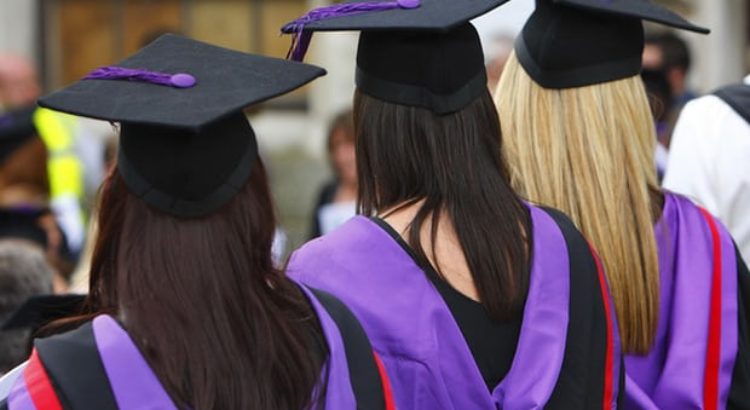

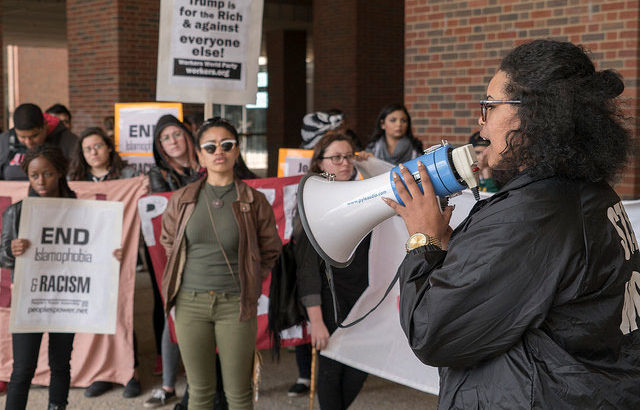

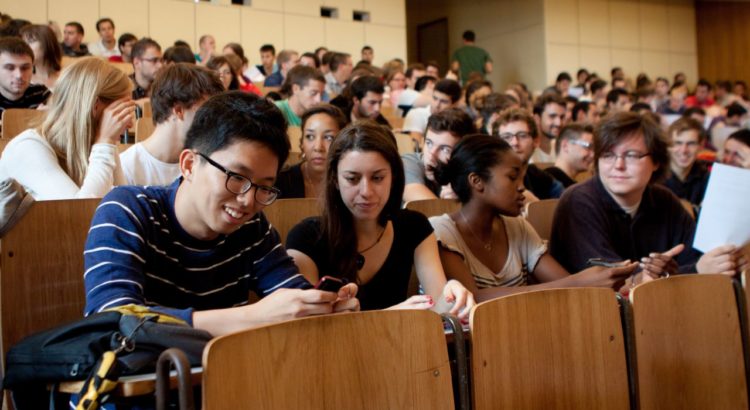
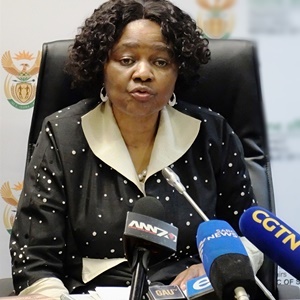
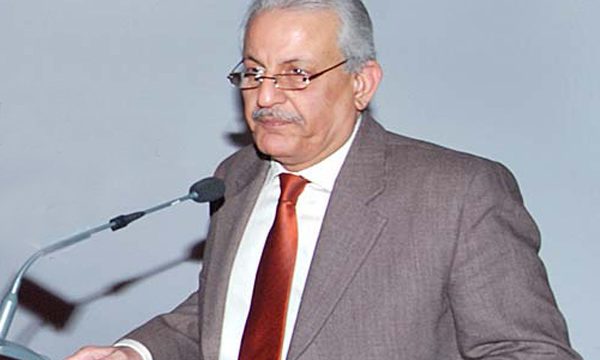






 Users Today : 14
Users Today : 14 Total Users : 35460367
Total Users : 35460367 Views Today : 19
Views Today : 19 Total views : 3419119
Total views : 3419119